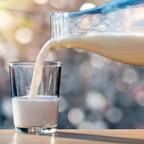Depression, Anxiety Hinder Quality of Life After Stroke
Dec. 19 -- THURSDAY, Dec. 18 (HealthDay News) -- Many people who survive a subarachnoid hemorrhage stroke have a poor quality of life due to anxiety, depression and fatigue, Dutch researchers report.
A subarachnoid hemorrhage (SAH) stroke occurs when a blood vessel on the brain surface ruptures and bleeds into the space between the skull and the brain, but not into the brain. This study included 141 women and men, average age 51, living in the community two to four years after an SAH stroke.
Using the Stroke Specific Quality of Life scale, the researchers found that 32 percent of the survivors reported anxiety, 23 percent reported depression, and 67 percent reported fatigue. Overall, the best scores were in physical function, while the lowest scores were in emotional and social areas.
The study was published in the Dec. 19 online issue of Stroke.
"The major point is to look beyond physical symptoms and look at psychological symptoms and personality characteristics to evaluate quality of life. These characteristics are important to planning rehabilitation and targeting an intervention to help improve quality of life," study author Dr. Anne Visser-Meily, a rehabilitation specialist at the University Medical Center in Utrecht, said in an American Heart Association news release.
"When you analyze depression, anxiety and fatigue [in SAH survivors], you find there is a strong correlation with a passive coping style and neuroticism. Those with a passive coping style need psychological support to encourage them to be more independent," Visser-Meily said.
She and her colleagues also found that cognitive function is another important determinant of quality of life associated with coping style. Survivors were more likely to have neuropsychological problems if they had a passive coping style and were depressed.
"This emphasizes the need to take personality into account as a potential vulnerability factor for decreased QOL [quality of life]," Visser-Meily said.
A separate study also led by Visser-Meily found that coping is the most important predictor of psychological well-being of spouses of stroke survivors. The study, which included 211 stroke survivors and their spouses (average age 54), found that active coping strategies were associated with less stress and higher levels of participation, while a passive coping style was associated with negative outcomes.




